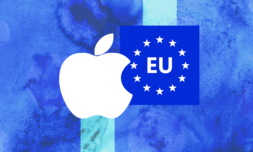The recent sentencing of Ruby Franke, who dished out parenting advice online, has sparked conversation around the safety of so-called ‘sharenting’ via social media.
When Ruby Franke was sentenced to four terms in prison, she had 2.3 million followers on a now-deleted YouTube channel titled ‘8 Passengers’.
The premise of the channel was to provide parenting advice, a phenomenon known online as ‘sharenting’. And to her millions of followers, Franke was – ostensibly – good at it. Alongside business partner Jodi Hildebrant, Franke had built a successful career off the back of her parenting videos, amassed a dedicated following that spanned the country, and firmly cemented herself as a parenting ‘influencer’.
But a few weeks ago, Franke was found guilty of child abuse and neglect. The sentencing came after her malnourished 12-year-old son escaped through an open window of Hildebrant’s home and asked a neighbour for food. He had open wounds and was bound with duct tape.
When police arrived, they found another of Franke’s young daughters in a similar condition, and Franke and Hildebrant were quickly taken into custody.
After her arrest, Franke’s eldest daughter Shari, aged 20, shared a now-deleted Instagram image of police officers with the caption ‘Finally’. Her response implies long-term abuse by Franke and a lack of intervention by authorities.
The case has raised questions around the role of parenting influencers and the dangers of ‘Sharenting’ online.
We live in a world constantly permeated by social media, making the line between public and private increasingly fragile. Franke highlights how oversharing can lead to severe consequences – not just in terms of her own punishment, but in the spread of misinformation to others.
Franke’s family wrote letters to the Utah judge prior to her sentencing last week, explaining that she had been ‘deeply brainwashed’ after meeting her business partner Jodi Hildebrant.
‘She was so delusional. She was so deeply brainwashed we could not recognise her’ they wrote.
‘During her career on YouTube […] I never had any concern for her or her children, ‘ Franke’s brother, Beau Griffiths, said in a written statement.
‘I was impressed by how generous and kind she has always been to my own children. Many of the teachings of the Connexions program [Hildebrant’s parenting classes] were reasonable and good,’ he continued. ‘Unfortunately, as I later discovered, this is what made the program so dangerous’.




















